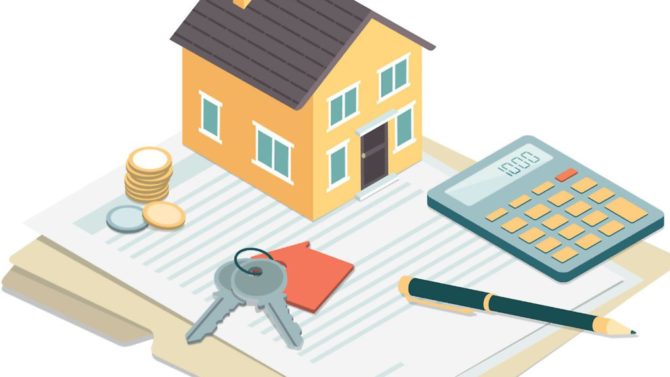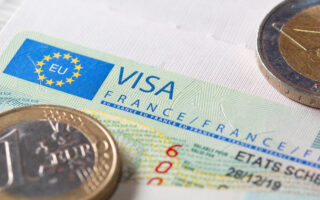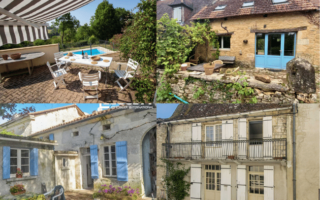14 things to do when you inherit a French property

These are some of the steps you will need to take when dealing with a French property after a death in the family
Dealing with the paperwork which follows the death of a loved one is never easy, especially if it involves property abroad where you don’t speak the language, and if the property has been vacant and neglected. Here are some pointers to help you through the process:
NOTAIRES
1. Appoint a notaire in France to handle the legal aspects concerning the property, including any taxes due and outstanding debts owed by the deceased person. This can be done in advance of any visit to France using the directory on notaires.fr/en. Put the département name or the nearest big town into the search facility and you can then select an English-speaking notaire.
2. If you can’t get over to the property straight away, still appoint a notaire and explain to them why you are unable to visit the house yet. If you don’t know anyone nearby who could just pop by and report on how the place looks, it would be worth contacting the local mairie and asking for their help.
3. The notaire will need the death certificate, details of the property, the will and details of all the inheritors – pretty much the same as a solicitor would want in the UK. While he/she can find the title deeds themself, they will expect you to provide information on the bank accounts, utilities bills and moveable assets.
4. The notaire should be able to obtain a bordereau de situation (statement of taxes due) from the main tax office (hôtel des impôts) upon submission of a simple formal request. Alternatively, you could pop in yourself, or ask at the local trésor public (tax payment office).
5. You should tell the notaire what is in the house in terms of valuables, furniture, vehicles etc. If anything is of significant value, you may have to get an official valuation done (the notaire will advise).
6. You will need to tell the notaire whether you are keeping or selling the property. If you are keeping it, go into a local bank and open a current account (compte courant) while you are in France, it’s usually much easier than doing it online. You will need one to set up services such as water and electricity in your name. If you are selling it, ask the notaire when you can start marketing it and for their advice on where to sell it. Once the property is in your name you will be liable for the property taxes and maintenance, so be realistic on price if you want to sell.
______________________________________________________________________
Further reading….
How do you register a death in France?
How to set up accounts for your French property
How to pass on your French property in a tax-efficient way
______________________________________________________________________
VISITING THE PROPERTY
7. Book somewhere comfy nearby to stay when you first visit the property. If the house hasn’t been lived in for some years, there will probably be no electricity or water.
8. Take your time to look around the place and the contents. Invest in a headtorch if there are attics and dark cellars to investigate, it leaves your hands free while you negotiate dodgy staircases.
9. Use your first visit to check on security, roof leaks, whether you need to get in a house clearance firm, the state of the garden and the pool if there is one. Locate and take a note of the readings on the electricity and water meters – taking a photo of them if you can.
10. Smile and say ‘bonjour’ to the neighbours and tell them who you are. They may be able to help you in practical ways such as where to dispose of household rubbish and who could tidy the garden for you.
DOCUMENTS AND PAPERWORK
11. You will need to find copies of household bills and taxes, even out-of-date ones are useful as with the client reference numbers you should subsequently be able to establish the current situation and any debts owing. Hopefully, you will end up with documents identifying bank accounts, electricity (usually EdF), water, house insurance and maybe phone and internet providers. For taxes, you should have found something about the property taxes, taxe foncière and taxe d’habitation, and income tax (impôt sur le revenu).
12. Remember, when bills go unpaid reminder letters are sent before contracts are cancelled by the suppliers for non-payment; subsequently, water, electricity and phone services are cut. Unpaid bills are often subject to late payment penalties and these can mount up. Most companies pass these to debt collection agencies and eventually on to bailiffs.
13. If there’s a car you need to find the certificat d’immatriculation (log book) – check the glove box as it may be in there. If you can’t find it, it’s worth asking the insurer as they should have a copy, which will help you obtain a new one when the notaire has finalised the paperwork.
14. If you are lucky, house and car insurance will have been organised through a local agent, in which case you can pop in and speak to a human being face to face – always easier than on the phone. Take the death certificate and the notaire’s details with you.
Property manager Mary Hall lives in the Lot valley
_____________________________________________________________________________________
You might also like….
Why your name must be correct on the paperwork you’ll need to live in France
Share to: Facebook Twitter LinkedIn Email


